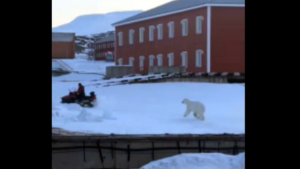US forces strike against ISKP suicide bombers in Kabul, officials say
No immediate word on casualties, but incident may have triggered second blast in which child died
US forces have launched a “defensive” military strike in Kabul against a vehicle carrying “multiple suicide bombers” from the Islamic State’s local affiliate in Afghanistan who were aiming to attack the airport, American officials have said.
There was no immediate word on casualties and few other details about the incident, which may have triggered a second blast in a nearby house.
Witnesses reported an explosion near Kabul airport and television footage showed black smoke rising into the sky. Taliban officials confirmed the US account. According to some reports, a child died in the second blast.
The strike came three days after a suicide attack at the airport that killed more than 180 people, including 13 US Marines.
The Islamic State in Khorasan Province (ISKP) claimed responsibility for the bombing at the airport, one of the most lethal in Afghanistan’s history. The group uses the name employed by Muslim imperial rulers for a swath of territory that includes modern-day Afghanistan and has fought a long, bitter battle with the Taliban since its foundation seven years ago.
The Taliban and US forces have increased security around the airport since Thursday’s attack. The Pentagon spokesman John Kirby said on Saturday that Washington believed there were still “specific and credible” threats against the airport.
“We … would expect future attempts,” he said. “We’re monitoring these threats, very, very specifically, virtually in real time.”
The airlift by about 20 countries in which tens of thousands of people have been evacuated from Kabul’s airport since the Taliban took over two weeks ago is winding down, effectively imposing a deadline for extremists wanting to attack an obvious target, analysts said.
Britain ended its evacuation flights on Saturday, but US military cargo planes continued their flights on Sunday before the deadline of 31 August set by Joe Biden to withdraw all troops from America’s longest war.
The US president has promised to hunt down those responsible for Thursday’s bombing, striking in a place and time of his choosing.
ISKP was forced out of strongholds in the eastern province of Nangarhar by US, Afghan government and Taliban offensives last year. It has since regrouped, retaining some networks in the east of Afghanistan and establishing new ones in Kabul.
A US drone strike in Afghanistan killed two IKSP “planners and facilitators” who were travelling in a car near the eastern city of Jalalabad at about midnight on Friday, US officials said on Saturday. They are not believed to be linked directly to last week’s airport bombing.
Biden promised further US strikes in a statement on Saturday night and said a new attack by ISKP was highly likely in the next 24 to 36 hours.
“The situation on the ground continues to be extremely dangerous, and the threat of terrorist attacks on the airport remains high,” he said.
Zabihullah Mujahid, the Taliban’s main spokesman, condemned Friday’s drone strike as a “clear attack on Afghan territory”, but appealed to the US and other western nations to maintain diplomatic relations after their withdrawal.
ISKP sees the Taliban as apostates, accusing Afghanistan’s new rulers of being “filthy nationalists” who have compromised their faith by negotiating with the US and other international powers.
In a recent report compiled from intelligence supplied by member nations, the UN said ISKP had been reduced to between 1,500 and 2,200 fighters, but noted that the group had intensified its campaign of violence this year.





